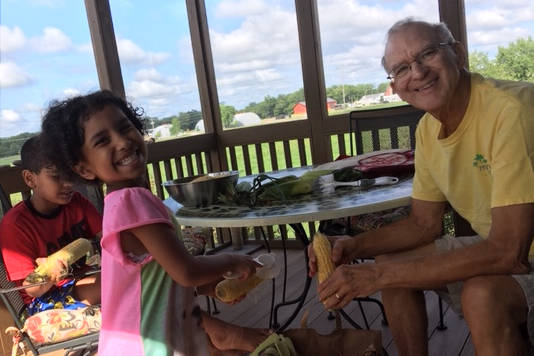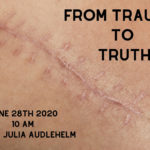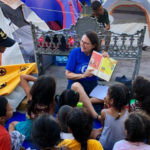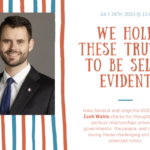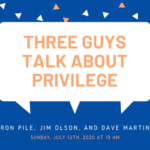I Believe Racial Injustice Still Exists
by Kim Palmer
I grew up in the small Southern town of Clarkston, Georgia and went from the first through the twelfth grade on the same school campus from 1952 to 1964 – still all white 10 years after the Brown v. Board of Education decision. Eventually I joined Clarkston Baptist Church, and my first truths/beliefs were 100% Southern Baptist-oriented.
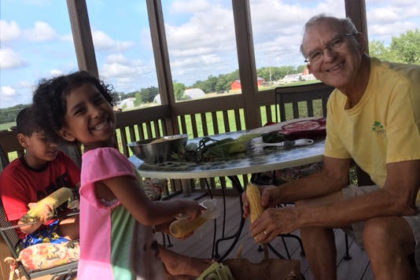
When I was a senior in high school, Clarkston Baptist installed a new organ and invited the “neighborhood” to attend a dedication service, by which they meant the Methodist folks down the street. On that Sunday afternoon in 1964 a group of nicely dressed African Americans seated themselves in the back row. No one shouted at them or turned them away, but they were obviously not welcome and ignored with plenty of gossip. Was this what I had learned in Sunday School? This became the first crack in my set of beliefs at that time.
I believe racial Injustice still exists. Even though there have been great strides, the racist society I grew up in continues to thrive in our society today. I believe that if you’re born white in the U.S.A., you’re automatically born with an advantage, or privilege. I don’t believe you should feel guilty because you were born white. But it’s important to realize that many black men have to live with an underlying, constant fear of being in the wrong place, saying the wrong thing, or making a wrong move.
After I retired, I attended a workshop called “Healing Racism.” I was paired with an African American man who told me that while he was growing up, he passed several white schools before getting to his school because of segregation. After one of our sessions, he told me that was the first time he had ever sat down face-to-face, one-on-one, and had a conversation with a white person. Today, many public schools continue under de facto segregation and it’s worse than the past.
My first year of teaching was in 1969 as a math teacher in a small town east of Atlanta. It was also the first year that the town’s all-black school was closed; all students would now attend the “white school.” The mix resulted in about 60% white and 40% black students.
Besides being a math teacher, I was assistant basketball coach under the African American coach who had come from the black school. I heard via the grapevine that he probably wouldn’t last more than a year. The third year he coached we came in second in state, and in the fourth year we won the state championship.
When we had home games, he would come to our house for dinner so he didn’t have to eat out or drive back into Atlanta. While we were eating one evening, he said, “Kim, you’re going to wake up one morning, and all of your tires are going to be slashed” – that was 1972 but luckily it never happened.
I also believe that if all kids were given an equal chance and equal opportunity, you’d see equivalent results. My first day of teaching eighth graders, I was calling the roll and announced “Quintin Fretwell”.” Instead of hearing the usual response of “here,” I heard “Quintin J. Fretwell”. Quintin J. Fretwell was an excellent student over the next four years. Several years later I passed him while going into a restaurant, and he looked exactly like he did in the eighth grade!
I said, “Are you Quentin Fretwell?” and he said, “Yes, I’m Dr. Fretwell.” He then introduced me to the African American woman he was with – a colleague who had also earned the title of doctor.
I believe we should all be fighting racial Injustice in some way. If you don’t have the time or energy, then look online and find an organization that fights racial injustice. The two that Lula and I support are the Southern Poverty Law Center and Equal Justice Initiative. And here at UUS, our Racial Justice Action/Study Circle’s goal is to fight racial injustice right here in our own community.

